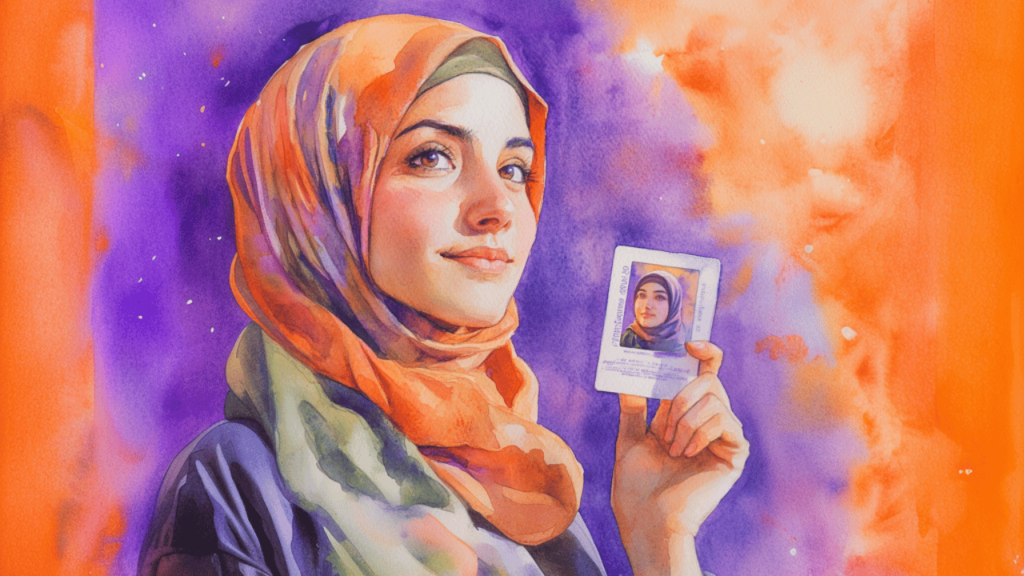During the back-to-school period, many young women are forced to provide their educational institution’s administration with photos where they are ‘bare-headed’, under penalty of not being issued their student card.
What does the law say?
In accordance with freedom of conscience, displaying a religious symbol in higher education should not represent any obstacle, even in photos. No one can deprive you of the freedom of expression and conscience that is guaranteed to you at the university.
The requirement to provide a bare-headed identity photograph is subject to the existence of a legal text that expressly states this obligation.
Generally, we distinguish between two types of photographs:
- Official identity photos (national identity card, passport, residence permit, health insurance card, driver’s license) that require appearing bare-headed.
- Identity photos on non-official documents (university or college enrollment file, student card, transport card, sports subscription card, etc.) are not governed by any specific provision requiring you to appear bare-headed.
Consequently, the principle is that wearing a headscarf should not pose any problem for the student card photo. Any refusal based on the grounds that you wish to use a photo where you are wearing a headscarf is therefore illegal.
What should I do?
If, despite everything, a comment is made about your headscarf in the photo:
- Consult the internal regulations of the university to familiarize yourself with the conditions relating to possible restrictions.
- If no provision is made in the internal regulations, you can report this discrimination to your interlocutor and inform the dean of the university as well as a student union
- If a provision is included in the internal regulations, immediately inform the university dean of the illegality of the measure.
- File an appeal with the registration service.
- If your appeal is rejected, contact the university’s legal department.
- The internal regulations of a public higher education institution that would prohibit the wearing of religious symbols for the creation of the student card is discriminatory and must be denounced as such in order to be modified by the administration.
- In both cases, contact Equitas who will provide you with legal assistance and support you in your efforts.
Applicable references:
- Official identity photographs: Decree No. 99-973 of November 25, 1999 amending Decree No. 55-1397 of November 22, 1955 instituting the national identity card; Decree No. 2005-1726 of December 30, 2005 relating to passports; Order of April 10, 2007 relating to the affixing of identity photographs on identity and travel documents, driving licenses and residence permits; Decree No. 2007-199 of February 14, 2007 relating to the health insurance card and amending the Social Security Code.
- Issuance of student card: Art. D612-5 of the Education Code;
- Religious freedom: Art. 10 of the Declaration of the Rights of Man and of the Citizen of 1789; Art. 9 of the European Convention for the Protection of Human Rights; Art. L. 141-6 and L. 811-1 of the Education Code; Art. 1, 3, 4, and 5 of the 1960 Convention against Discrimination in Education.




